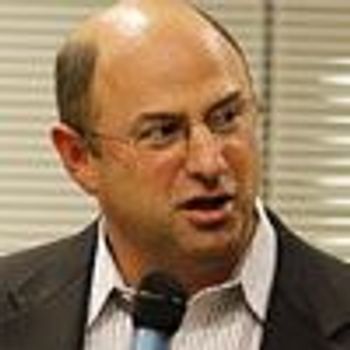
Two CD19-targeted chimeric antigen receptor-modified T-cell therapies demonstrated complete response rates ranging from 90% to 100% in patients with high-risk acute lymphoblastic leukemia.

Silas Inman joined MJH Life Sciences in early 2011 and has evolved his role at the organization throughout his tenure at MJH. At various points, Silas has been accountable for several organic launches of highly successful brands, including Targeted Oncology™ and NeurologyLive®, and for quickly transforming acquisitions into high-functioning business units. Prior to joining MJH, Silas, who attended Eastern Michigan University, was an EMT, frontend web developer, and social media/SEO expert. Follow him on X @SilasInman or email him at [email protected].

Two CD19-targeted chimeric antigen receptor-modified T-cell therapies demonstrated complete response rates ranging from 90% to 100% in patients with high-risk acute lymphoblastic leukemia.

Updated findings from early stage clinical trials exploring chimeric antigen receptor-modified T-cell therapies continue to highlight the effectiveness of these approaches for patients with non-Hodgkin lymphoma.

The FDA has approved nivolumab as a treatment for patients with metastatic renal cell carcinoma following prior treatment with an anti-angiogenic therapy.

The FDA has granted a breakthrough therapy designation to avelumab as a potential treatment for patients with metastatic Merkel cell carcinoma following progression on at least one prior chemotherapy regimen.

The FDA has assigned a priority review designation to the PD-1 inhibitor nivolumab as a treatment for patients with advanced renal cell carcinoma following prior antiangiogenic therapy.

The FDA has granted an accelerated approval to osimertinib for patients with advanced EGFR T790M mutation positive non–small cell lung cancer following prior therapy on a prior EGFR TKI.

The combination of lenalidomide and rituximab demonstrated an objective response rate of 92% as initial therapy for patients with mantle cell lymphoma.

The FDA has granted a breakthrough therapy designation to pexidartinib as a potential therapy for patients with tenosynovial giant cell tumor for which surgical removal is contraindicate.

Rolling submission of a new drug application for cabozantinib has been initiated for patients with advanced renal cell carcinoma who have received one prior therapy.

Coexisting driver mutations in EGFR-mutant non–small cell lung cancer could potentially contribute to primary resistance to EGFR-targeted therapy.

The European Commission has approved eltrombopag as a treatment for adult patients with severe aplastic anemia who are refractory to immunosuppressive therapy or are heavily pretreated and not suitable for hematopoietic stem cell transplant.

The FDA has approved the antibody-drug conjugate brentuximab vedotin as a consolidation therapy following autologous stem cell transplantation in patients with Hodgkin lymphoma who are at risk of relapse or progression.

A number of clinical trials are now assessing PD-1 and PD-L1 inhibitors in combination with chemotherapy, targeted therapies, and radiation therapy in an attempt to further improve outcomes for patients with non–small cell lung cancer.

The FDA has granted a breakthrough therapy designation to lenvatinib as a potential treatment for patients with advanced renal cell carcinoma who have received a VEGF-targeted therapy.

The FDA has granted a breakthrough therapy designation to the combination of the BRAF inhibitor dabrafenib and the MEK inhibitor trametinib as a potential treatment for patients with BRAFV600E-mutant non-small cell lung cancer.

Rolling submission of a new drug application for rociletinib has been initiated for patients with EGFR T790M-positive metastatic non–small cell lung cancer following prior treatment with an EGFR-targeted therapy.

The CD19-targeted chimeric antigen receptor T-cell therapy CTL019 demonstrated early evidence of activity and safety in patients with refractory multiple myeloma.

The FDA has granted a breakthrough therapy designation to crizotinib as a potential treatment for patients with ROS1-positive non–small cell lung cancer.

The FDA has granted a priority review to the antibody-drug conjugate brentuximab vedotin as a consolidation therapy following autologous stem cell transplantation in patients with Hodgkin's lymphoma at risk of relapse or progression.

Infusions of Epstein-Barr virus (EBV)–specific cytotoxic T lymphocytes from healthy donors led to high response rates and significant extensions in overall survival for patients with rituximab-refractory EBV–associated lymphoproliferative disorders.

The anti-CD19 chimeric antigen receptor-modified T-cell therapy CTL019 demonstrated an impressive 92% complete response rate in pediatric patients with relapsed/refractory acute lymphoblastic leukemia.

The top research being presented at the 2014 American Society of Hematology Annual Meeting will focus on immunotherapies and novel agents, according to Marcel R.M. van den Brink, MD, PhD.

The chimeric antigen receptor (CAR) T cell therapy JCAR015 has received a breakthrough therapy designation from the FDA as a treatment for patients with relapsed or refractory B-cell acute lymphoblastic leukemia (ALL).

Treatment with KTE-C19, a CD19-targeted CAR-modified T cell therapy, demonstrated an objective response rate of 92% in patients with advanced B-cell malignancies.

To gain insight into the studies being presented at the ASH Annual Meeting, we interviewed Marcel R.M. van den Brink, MD, PhD, on abstracts being presented by faculty at Memorial Sloan-Kettering Cancer Center.

Acting ahead of schedule, the FDA has granted an accelerated approval to ibrutinib as a treatment for patients with mantle cell lymphoma who have received at least one prior therapy.